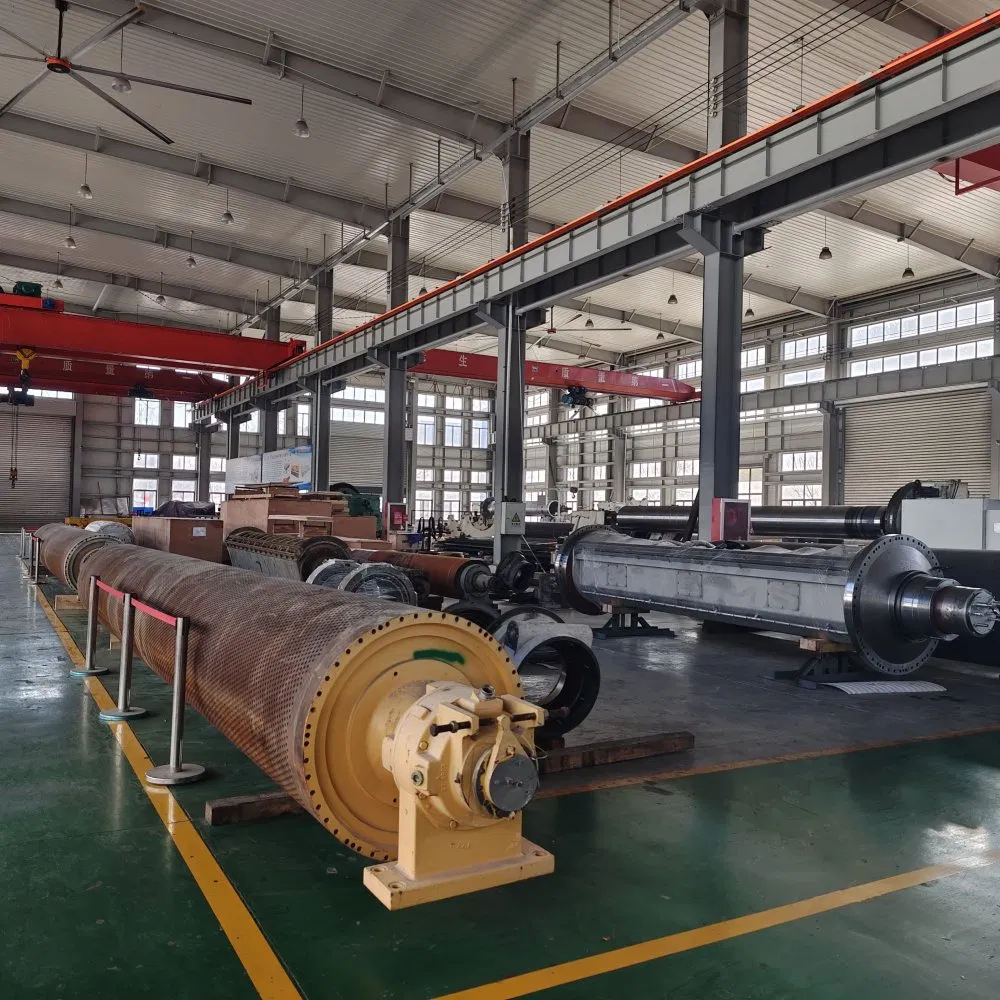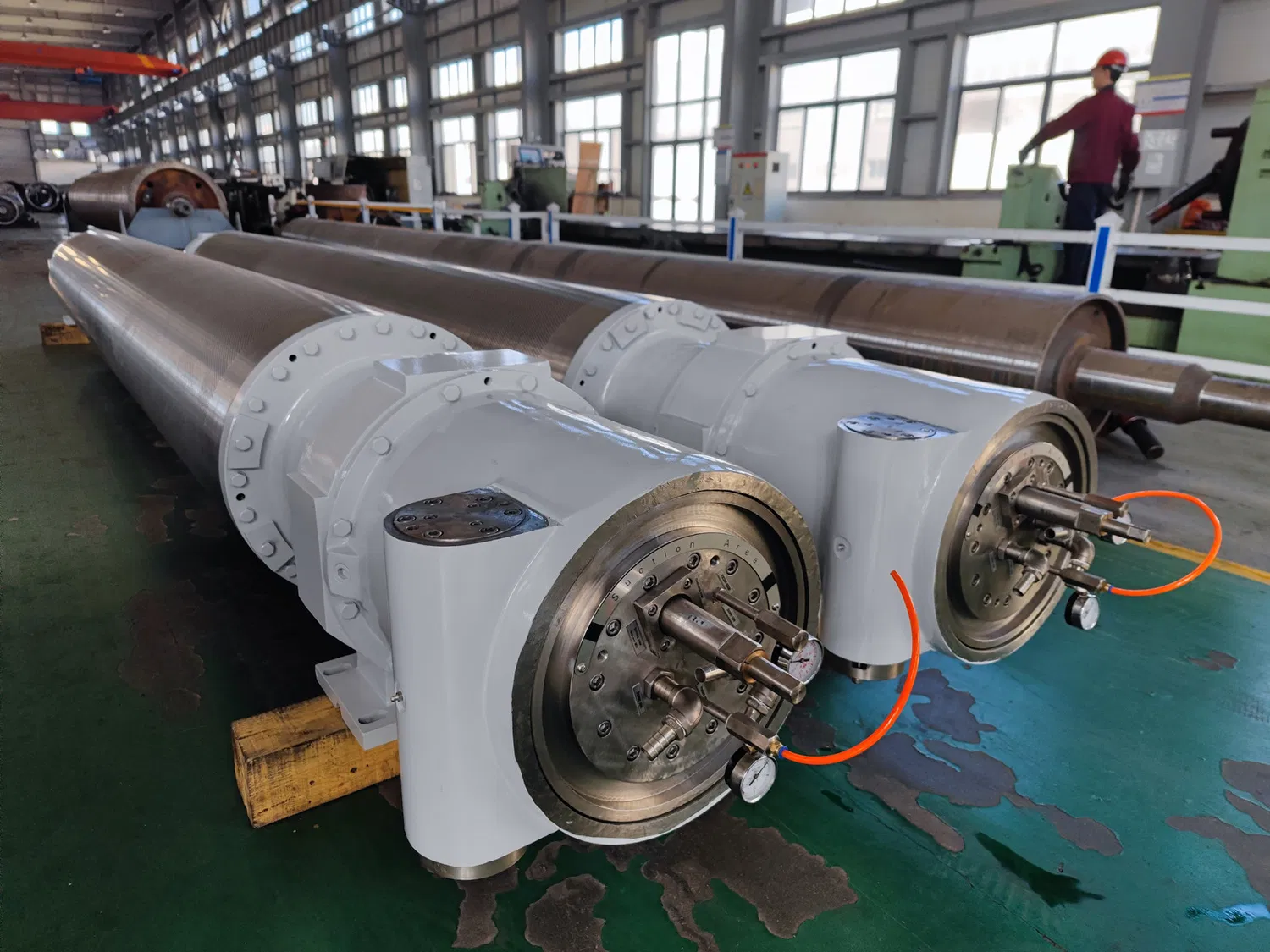In the vast and ever-present world of paper production, the unsung heroes are the massive, precision-engineered components that work tirelessly behind the scenes. At the very core of this industrial marvel is the paper machine, a colossal assembly line of rollers, felts, and wires. And let's be honest, the quality and reliability of your paper machine rolls can make or break your entire operation. Sourcing these critical components is a high-stakes decision, which is why understanding the nuances of purchasing Wholesale paper machine rolls is not just a matter of cost-savings, but a strategic imperative for any successful paper mill.
Have you ever stopped to think about the incredible journey water-logged pulp takes to become a smooth, dry sheet of paper? It's a process of immense pressure, heat, and precision, all orchestrated by a series of specialized rolls. This guide will walk you through everything you need to know—from the different types of rolls and their functions to the critical factors you must consider when making a bulk purchase. We'll explore why a wholesale strategy is often the smartest move and how to vet a supplier to build a partnership that fuels your mill's success for years to come.
Understanding the Heart of Papermaking: A Tour of Paper Machine Rolls
Before you can confidently purchase rolls, it’s crucial to understand their specific roles within the paper machine. A paper machine is typically divided into several key sections, and each one relies on different types of rolls to perform its function. It's a symphony of engineering, and every instrument must be perfectly in tune.
The Forming Section: Where It All Begins
This is the birthplace of the paper sheet. A slurry, which is over 99% water, is sprayed evenly onto a wide, moving screen or "forming fabric." A series of rolls in this section, including breast rolls, forming rolls, and couch rolls, supports the fabric and helps with the initial dewatering process. The couch roll, in particular, is a large, perforated roll that uses suction to pull a significant amount of water from the fledgling paper web before it moves to the next stage. The precision here is paramount; any inconsistency can lead to defects in the final product.
The Press Section: Squeezing Out the Water
After leaving the forming section, the delicate paper web is transferred to the press section, sandwiched between absorbent press felts. Here, it passes through a series of large, heavy rotating rolls that press the water out of the sheet through immense mechanical pressure. It's worth noting that this is one of the most critical areas for roll performance.
The rolls in this section can be:
- Plain Press Rolls: Solid, smooth rolls that apply pressure.
- Suction Press Rolls: These have a perforated shell with a suction box inside to actively pull water into the roll.
- Grooved or Blind-Drilled Rolls: These rolls have grooves or small, non-through holes on their surface, which create channels for the pressed water to escape.
The efficiency of the press section directly impacts the energy required in the subsequent dryer section. Better water removal here means less energy (and money) spent on evaporation. This is where finding reliable bulk paper machine felt suppliers becomes just as important as the rolls themselves, as the felt and roll work together as a system.
The Dryer Section: The Final Touch
The paper sheet, now much stronger, snakes its way through the longest part of the machine: the dryer section. This section can contain dozens of steam-heated, cast-iron dryer cylinders (or rolls). The sheet is held tightly against these hot surfaces by dryer fabrics, allowing the remaining water to evaporate. The surface integrity and heat transfer capability of these dryer rolls are essential for producing a uniformly dry and stable sheet of paper.

Critical Factors When Buying Wholesale Paper Machine Rolls
Making a wholesale purchase is about more than just getting a good price. It's an investment in your mill's productivity and product quality. Frankly speaking, overlooking key details can lead to costly downtime and production issues. When you're evaluating options, you need to dig deep into the specifications and materials.
Material Composition and Durability
The material of a roll determines its lifespan, performance, and suitability for a specific position in the machine. Common materials include:
- Cast Iron: The traditional choice for dryer rolls due to its excellent heat transfer properties and stability. - Steel: Often used for roll shells that require high strength and can be covered with other materials. - Granite: Used for some press rolls because of its excellent water-release properties and resistance to corrosion. - Rubber, Polyurethane, and Composite Covers: Many rolls, especially in the press section, are steel-cored but have a specialized cover. The cover's hardness (measured in P&J) and chemical resistance are tailored to the specific application.
In my experience, discussing the operational environment—like the types of chemicals used or the machine's running speed—with a potential supplier is non-negotiable. A good supplier will use this information to recommend the ideal material and cover composition.
Technical Specifications: Getting the Details Right
You must match the roll's specifications precisely to your machine's requirements. Getting this wrong is a recipe for disaster. Pay close attention to the industrial paper roll specifications provided by the manufacturer. Key parameters include:
- Diameter and Face Length: These must match your machine's design to ensure proper fit and paper width.
- Crowning: Rolls are often ground to have a slight curve or "crown" in the middle. This compensates for the bending that occurs under immense pressure, ensuring uniform pressure across the entire width of the paper sheet. The required crown is a complex calculation based on load, roll material, and width.
- Surface Finish: The smoothness or texture of the roll surface is critical. A calender roll, used for finishing, will require a mirror-like finish, while a press roll might need a specific texture to manage water.
- Bearing and Journal Details: The ends of the roll (journals) must be machined to perfectly fit the bearings in your machine.
Compatibility with Your Machinery
This might seem obvious, but it goes beyond simple measurements. A new roll must be dynamically balanced to run smoothly at high speeds without causing vibrations that could damage the machine or the paper sheet. Have you ever considered the ripple effect a single mismatched roll can have on your entire production line? It can introduce barring, chatter, and other defects that render your final product useless. Always provide your machine's model, serial number, and, if possible, the original engineering drawings to your wholesale supplier to guarantee a perfect match.
The Advantages of Sourcing from Wholesale Suppliers
For a high-consumption item like paper machine components, establishing a relationship with a wholesale supplier is a strategic business decision. The benefits extend far beyond the initial price tag.
Cost-Effectiveness and Bulk Pricing
The most apparent advantage is the economy of scale. Purchasing Wholesale paper machine rolls allows you to secure a significantly lower price per unit compared to single-piece orders. This directly reduces your maintenance and operational costs, improving your bottom line. Wholesalers can offer these prices because they deal in high volumes, streamlining their own production and logistics.
Access to a Wider Inventory and Expertise
Specialist wholesalers live and breathe paper machine components. They typically stock a much wider range of rolls, felts, and fabrics than a general industrial supplier. Interestingly enough, they also possess a wealth of technical knowledge. A great wholesale partner acts as a consultant, helping you troubleshoot issues, recommend upgrades, and stay informed about the latest advancements in roll technology and materials.

Building a Long-Term Strategic Partnership
Moving from a transactional relationship to a strategic partnership with your supplier provides immense value. A reliable wholesale partner understands your operational needs and can help you manage your inventory, ensuring you have critical spare parts on hand to minimize downtime. This reliability is priceless. In my experience, the peace of mind that comes from knowing your supply chain is secure allows you to focus on what you do best: making high-quality paper.
How to Vet and Choose the Right Wholesale Partner
Not all wholesalers are created equal. Finding the right partner requires due diligence. You are entrusting them with a critical part of your operation, so a thorough vetting process is essential.
Evaluating Supplier Reputation and Experience
Start by investigating their track record. How long have they been in the business? Who are their other clients? Don't be afraid to ask for case studies or references from mills with similar operations to yours. A reputable supplier will be proud to share their success stories. Look for a history of reliability, quality, and excellent customer service.
Quality Control and Certification
Quality should be your top priority. Ask potential suppliers about their quality control processes. How do they ensure that every roll meets the required specifications? Do they hold internationally recognized certifications, such as ISO 9001? These standards demonstrate a commitment to quality management and continuous improvement. A supplier should be able to provide detailed documentation on their material sourcing, manufacturing tolerances, and final inspection procedures.
Logistics, Shipping, and After-Sales Support
A fantastic roll is useless if it arrives damaged or late. Evaluate the supplier's logistics capabilities. What are their typical lead times? How do they package these massive, heavy components to ensure they arrive safely? Furthermore, what happens after the sale? A great partner will offer technical support during installation and be available to help troubleshoot any issues that may arise. A solid warranty and a clear support policy are signs of a supplier that stands behind their product.
Ultimately, choosing a supplier for Wholesale paper machine rolls is about finding a partner who can provide a high-quality, reliable product at a competitive price, all while supporting your mill's long-term operational goals. By taking a methodical and detailed approach to your sourcing strategy, you can build a resilient supply chain that becomes a true competitive advantage in the demanding world of paper manufacturing.
For more detailed information, please visit our official website:Wholesale paper machine rolls
About the author: Marcus Thorne is a Senior Procurement Specialist with over 15 years of experience in the paper and pulp industry. Specializing in industrial consumables and heavy machinery components, Marcus has helped dozens of mills optimize their supply chains for greater efficiency and cost-effectiveness. He is passionate about the intersection of engineering and strategic sourcing and believes that a strong supplier relationship is the foundation of any successful manufacturing operation. ---


